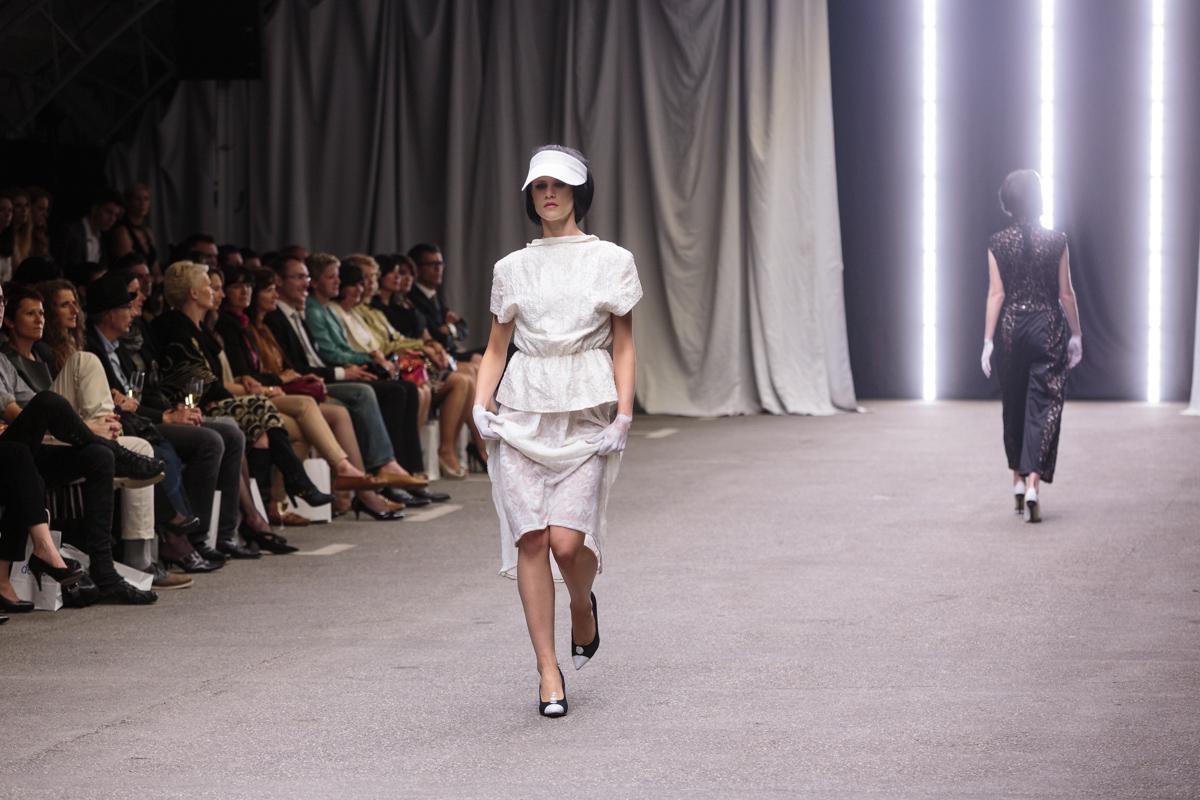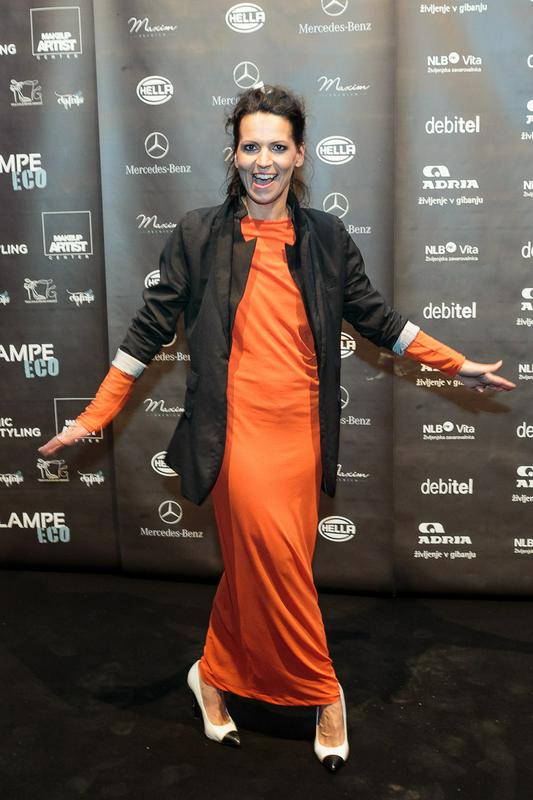
Buying and accumulating clothes is a characteristic of modern consumer society and of us, consumers. It is one of the symbols of consumerism. Open your wardrobes (in your room, in the basement or in the attic) and ask yourself how many items of clothing you have not worn in the last year or two. Even if you are someone who tries to help people in need and tries to act responsibly, I am afraid that the answer is still worrying. The recycling initiative, even in the world of high-fashion and prestige, which is fundamentally consumer-oriented, is welcome. It proves that the desires that drive our activity, our actions and way of life can be combined with a sustainable concept of development. It is proof that it is possible to do this in a different way. And it will not be possible to do it except differently.

This time, she has created the so-called ‘Checkmate’ collection, using more than a hundred used clothes, thereby making an allusion to our unreasonable competition with the nature. The world is not black and white and there are no winners or losers in the competition between human vs. nature: balance and sustainable cooperation must win.
The designer Simona Lampe believes that ecology is also important in fashion. The Recycling project began in 2009 and is based on recycling clothes donated by the Slovenian woman managers. It is primarily about spreading environmental awareness in business fashion, but also about economising. "Recycling clothes is very demanding and time-consuming, a real work of art, since the clothes are completely remade. But that is the point and fascination," says Lampe. The collection of recycled clothes includes clothes which observe the concept of rationality by being multifunctional. Lampe firmly believes that recycled and multifunctional clothing will also become fashion guidelines.
Simona Lampe, her history and her fashion design
Simona Lampe is a self-taught woman in fashion design. She has an MA in Economics. Seven years ago, the former banker who, as head of investor relations, regularly came into contact with international credit rating agencies, was stimulated by her passion for design and fashion into turning her hobby into a job, despite the initial uncertainty and doubt. At first, she designed under the trademark ‘Gospodična’, while today she is prepared to be at the forefront and has no reservations about presenting her name and work under the ‘Simona Lampe’ trademark.
She wants to give a new face to fashion design, which will clearly speak of her mission: to dress an active woman aged over 30. In every woman, she wants to emphasise her youthfulness and maintain her elegance. She says that she wants to "design rational, glamorous business fashion and spread awareness about the rational use of clothes among businesswomen through recycling and multi-use."
She tries to find inspiration for her work everywhere, including during sleep, and always wants to present her work through a concrete message or story. So, for the Slovenian Fashion Week autumn/winter 2013, she prepared a collection that was a compliment to the detective film style, particularly the English icon Sherlock Holmes. Sixty per cent of the collection was made from recycled clothes. The recycled items even included a dress made from a Macedonian blanket with a big floral pattern which Lampe had noticed at her neighbour’s when it was drying on the balcony.
Why recycle clothes?
Sustainable development is a process, a certain consciousness and a new system of values. The fashion industry and all labour-intensive industries can contribute considerably to reducing environmental pollution: fashion may contribute by using eco-friendly materials and recycling old clothes.
With her projects ‘Recycled I–II’, Simona Lampe wanted to show businesswomen the usefulness of recycling with a real example of their old clothes. The participating managers donated their old clothes, Lampe redesigned them and the managers could buy them back if they wanted. Through this type of creative process, the designer is building a new, sustainable aspect of fashion, clothes which are inclined towards rationality, but still preserve certain glamour.
"The aim was to raise awareness among businesswomen about consumerism in fashion and to fill them with enthusiasm for recycling old clothes. Because the response to ‘Recycled I’ was unexpectedly positive, I decided to pursue the idea," Lampe says. Can we look forward to ‘Recycled IV’? Despite the success of the project, the designer has some reservations, since she believes that a similar project could only be done somewhere abroad. She has also considered recycling men’s clothes, but fears that it would be more difficult to find buyers for her redesigned creations among managers, because men’s business fashion is rather conservative.
So what will Lampe’s next challenge be? She says she would be delighted to recycle the clothes of German Chancellor Angela Merkel and other visible female politicians or businesswomen. Perhaps next time you might read about Simona Lampe in a foreign fashion magazine. Who knows? Her portfolio has already attracted the attention of the editor of the French Runway Magazine …
Valerija Obu, SINFO
Buying and accumulating clothes is a characteristic of modern consumer society and of us, consumers. It is one of the symbols of consumerism. Open your wardrobes (in your room, in the basement or in the attic) and ask yourself how many items of clothing you have not worn in the last year or two. Even if you are someone who tries to help people in need and tries to act responsibly, I am afraid that the answer is still worrying. The recycling initiative, even in the world of high-fashion and prestige, which is fundamentally consumer-oriented, is welcome. It proves that the desires that drive our activity, our actions and way of life can be combined with a sustainable concept of development. It is proof that it is possible to do this in a different way. And it will not be possible to do it except differently.


































































